

KENNESAW, Ga. | Nov 22, 2017
Panel explores international students’ mobility and economic impact
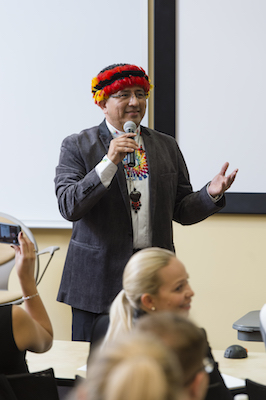
Some wore saris, embroidered robes or hijabs reflecting their national and cultural identities, but most of the international students, faculty and staff among the nearly 150 who gathered last week to hear a panel at Kennesaw State’s International Week 2017 were indistinguishable from their KSU peers.
That is a point members of the panel of Atlanta-based consular officers reiterated – that international governments hope their students will gain knowledge and expertise abroad then return and contribute to their respective countries, but many of the students come to feel at home in their host countries.
Participating in the panel discussion on international student mobility and its role in economic and societal development were Juan Rafael Arcos Tuitza, Consul General of Ecuador; Takashi Shinozuka, Consul General of Japan; and Oluwasegun Olukomogbon, a member of the Nigerian consular staff, representing Kayode Laro, acting Consul General. The panel was part of International Week activities organized by Kennesaw State’s Division of Global Affairs.
“We’re honored to have these distinguished international visitors with us today and to celebrate our international students,” Kennesaw State President Sam Olens said, reminding the audience that his interest in international affairs prompted him to seek undergraduate and graduate degrees in the field. “It was important to recognize our international students and the University’s long history of promoting international education and partnerships around the globe.”
Olens noted that 733 non-permanent U.S. residents from 94 countries are enrolled at KSU this fall, as are thousands of other students with international origins.
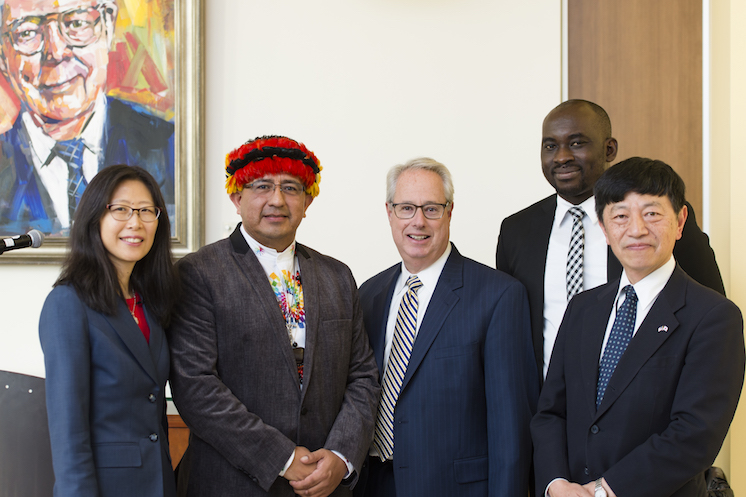
During the panel discussion, consular officers examined the economic impact of international students studying in the U.S. For example, data from the National Association for Foreign Student Affairs (NAFSA) suggests that KSU’s International population contributes $24.4 million to Georgia’s economy and supports 378 jobs in the local economy.
Consular officials would like to see some of that economic benefit return to their countries, and they offer various incentives for students who leave to study in the U.S. to return home. But most agree that educating their students, whether in the U.S. or at home, is beneficial to both countries.
Even though the Ecuadorian economy has developed considerably over the past 10 years and made massive investments in education, Consul General Tuiza said, the country also has invested tens of thousands of dollars in scholarships for students to study abroad.
“It’s a new season in our country to improve education,” Tuitza said. “We’re hoping they come back home to improve Ecuador and we ask them for a two-year commitment once they complete their education in exchange for scholarships.”
Consul General Shinozuka of Japan said students from his country who go abroad to study may receive scholarships from a number of sources, including private companies or government agencies. In either case, students are expected to return to Japan to work, but there “are no requirements, no enforcement” to compel them to do so.
Kennesaw State student Felipe Loor, a native of Ecuador who is a naturalized U.S. citizen, says that he may return to his native country one day, but the senior international affairs major hopes to work for the U.S. foreign service when he graduates.
“It’s what I’ve always wanted to do,” said Loor, whose goal is to work outside the U.S., potentially in a Latin-speaking country.
Nigeria’s Olukomogbon agrees that it is a “win-win” for students from his country who study abroad, especially in the U.S. and the United Kingdom, the preferred destinations for most Nigerian students who go aboard.
“Getting a college education is a platform for students to improve their lives and their circumstances,” he said. “We rely on each individual to make the best decision. They owe it to themselves to excel in their studies. If they chose to stay in the U.S., they have advantages those back home don’t have but they still can make a contribution. If they chose to come home, they can also make a contribution.”
– Sabbaye McGriff
Photos by Lauren Kress
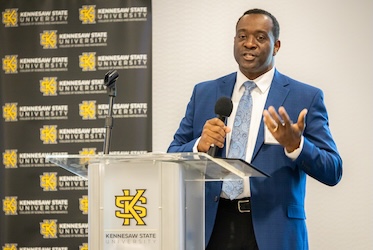
Kennesaw State, Birla Carbon launch global research internship in India
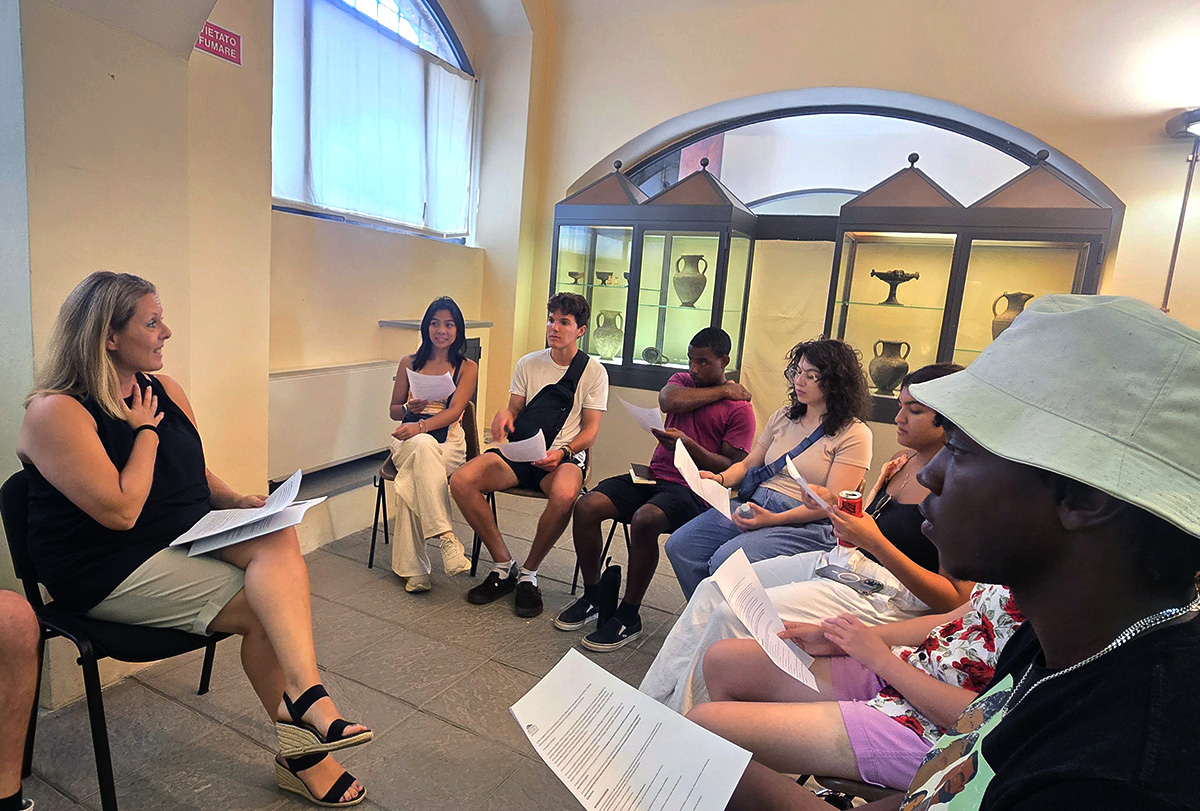
Kennesaw State students collaborate with Italian museum to uplift global presence
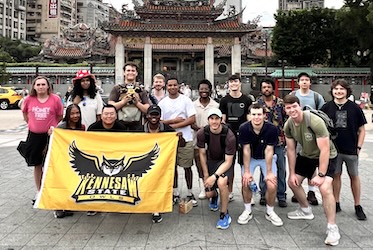
Kennesaw State study abroad program connects students with global tech leaders
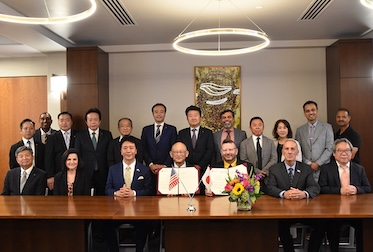
Kennesaw State and Fukuoka University sign agreement to expand global fintech education
A leader in innovative teaching and learning, Kennesaw State University offers undergraduate, graduate, and doctoral degrees to its more than 51,000 students. Kennesaw State is a member of the University System of Georgia with 11 academic colleges. The university's vibrant campus culture, diverse population, strong global ties, and entrepreneurial spirit draw students from throughout the country and the world. Kennesaw State is a Carnegie-designated doctoral research institution (R2), placing it among an elite group of only 8 percent of U.S. colleges and universities with an R1 or R2 status. For more information, visit kennesaw.edu.